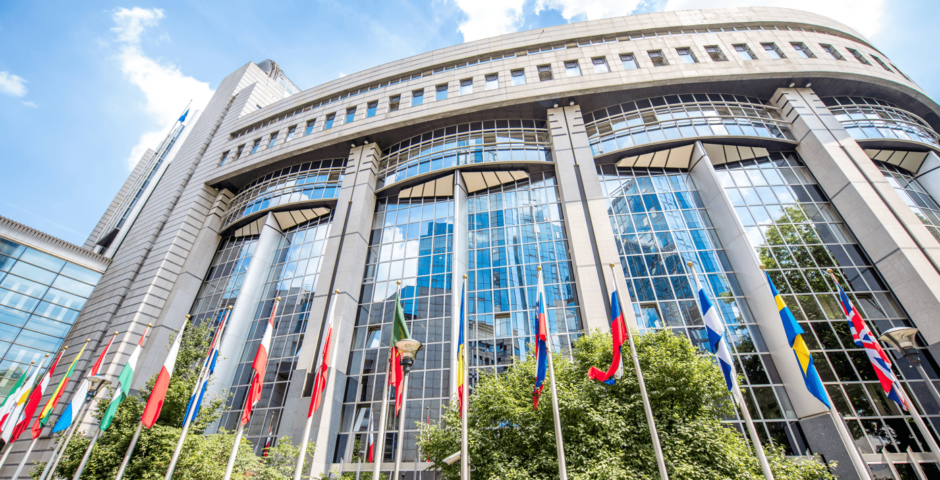Madrilenians reward Ayuso’s conservative People’s party in a monumental election

The extreme-right Vox party is all but guaranteed to join the coalition.
The fascist Caudillo of Spain, Francisco Franco, died in 1975 deciding that his successor would be the next in line to the throne of the Spanish monarchy: Juan Carlos I of Bourbon. The new king would launch the basis of a democratic reform of Spain under the guidance of Adolfo Suárez, Spain’s first democratically elected prime minister. This fact led to a dynamic and democratic Spain, with extensive civil liberties enshrined in the new constitution of 1978. The country joined the European Union in 1985, going on to become a parliamentary monarchy formed by autonomous communities. Nevertheless, this transition to democracy was done within the government structure of falangist Spain, meaning that the cupula of decision-making were still Francoist functionaries and contrary to Germany or Austria, the era of dictatorship was never fully “de-nazified”.
The Spanish political party development
Because of this, there were a number of influential figures from the Francoist regime that started new political projects, such as Manuel Fraga, who in 1976 founded the continuist, right-wing Alianza Popular – the precursor of the current center-right Partido Popular (PP). Under Franco, he was characterized as “an inexorable defender of the regime but knowing the need to reform certain aspects thereof”. These notable figures would continue to participate in Spanish politics, nourishing a cycle of “Sociological Francoism”. This term has been interpreted in various ways but is loosely explained as “a social attitude of submission and conformity that does not reject certain elements of the regime in the newly democratic system in order to avoid clashes or a new civil war”. Alianza Popular was not too successful, and the evolution towards Partido Popular was set in motion in an attempt to capture voters in the center of the political spectrum. This has meant that, for most of its democratic history, the Spanish right was characterized by different political tendencies within the PP from the far right to the moderate center and certain scholars agree that this “Sociological Francoism” was one of the reasons for the delay in the consolidation of a new representative of the far-right in Spain. This changed with the surge of the Vox political party.
Founded in 2013 by Santiago Abascal and Javier Ortega Smith, Vox set out to “capture right-wing votes of those disenfranchised by the politics of PP”. It originated from the critical circles of the conservative side of PP towards the government of Mariano Rajoy, eroded by the corruption scandals that affected his mandate and his lenient approach towards Catalan secessionism. Vox is a far-right, populist, ultranationalist, centralist and eurosceptic party that advocates for the defense of the Spanish nation, the dissolution of the autonomous communities and the preservation of culture and family. Even though until 2018 it was not as popular as other similar European political parties such as Front National in France, AfD in Germany, Fidesz in Hungary or Law and Justice from Poland, since its foundation, it has adopted the same strategies characteristic of other European populist parties such as questioning gender-related issues, anti-immigration and Islamophobia.
The 2021 Madrid election
Now Vox stands to play a decisive part in the next regional government of Madrid, as the capital went to the polls on May 4th for a snap election. The campaign saw dramatic language and hyperpolarization, with staunch language from both sides of the political spectrum. The election was of such high priority that Pablo Iglesias, the leader of the left-wing Podemos party, had stepped down from his role as one of Spain’s deputy prime ministers to throw his weight in the election – primarily out of fear for a hard right-wing government coalition between PP and Vox. This led PP’s regional president, Isabel Ayuso, to explain that the elections are a battle between “Communism or Freedom”, while Pablo Iglesias is of the opinion that the elections are a choice of “Democracy or Fascism”. Alas for Mr. Iglesias, his performance did not manage to convince voters. Despite his national profile, his party only managed to secure 7.2% of the vote. All this proved too much for Mr. Iglesias, who has decided to leave politics, concluding: ” When one is not useful, one has to know how to step down”.
Overall, the campaigns have been marked by bitter discourse. One exemplifying incident occurred on Wednesday April 21st, when a televised debate saw leftist candidates presenting a common front against Ayuso of the PP, who has been leading the polls in recent months. During the debate, the left attacked her management of the coronavirus pandemic and the PP’s social policies, while Ayuso chastised the Spanish Prime Minister Pedro Sánchez, of the Socialist Party (PSOE) for trying to nationalize the Madrileanian elections, stating that the PSOE is “destroying Spain and now wants to destroy Madrid”. At the same time, Vox chose very clearly to avoid attacking Ayuso, signaling its interest in forming a coalition government. At one point – in a moment that can be seen as emblematic of the political situation in the country as a whole – Vox candidate pulled out a controversial campaign poster suggesting that unaccompanied underage migrants receive 10 times more financing from the state than pensioners. Every candidate, except for Ayuso, was quick to scold and censor Vox, again showing a willingness by the PP candidate to accommodate Vox’s right-wing talking points.
This latter point seems to be playing right into the hands of Vox, which is seeking to pull the political debate strongly to the right. Aside from its standard rhetoric about traditional Spanish values and of the Spanish nation, the party is also seeking to win the nativist and socio-conservative votes, advocating for an (effective) ban on abortion and euthanasia, while also seeking to repeal laws protecting LGBTQ+ rights. While it is unclear to what extent the PP would be willing to accommodate these demands, it is a staunch departure from the previous makeup of the Madrilenian electorate, which saw the center-right Ciudadanos (Cs) party capture 20% of the traditional conservative vote. The rise of PP and Vox comes on the heels of the collapse of Cs, ending hopes of a centrist-driven regeneration of the Spanish right. In fact, the rise of PP is fueled by a pull to the right by Ayuso, in what is a worrying signal to the central leadership of the party. It is of particular concern as party president Pablo Casado had symbolically severed ties with Vox during a no-confidence debate in October 2020, in a bid to moderate the party’s stance.
National and international consequences
Overall, the situation presents a clear and present danger to the PSOE, which heads a minority government dependent on pragmatic cooperation by other parties. With 65 out of 136 seats the PP is just shy of the 69 seats needed to govern, making Vox indispensable for a coalition in Madrid. This means it will most likely get the chance to play a decisive role in the region, which is seen as a gateway to other institutions and national politics. This may give the party a chance to gain legitimacy in the eyes of the broader Spanish public, potentially leading it to become a serious contender at the national level come next election cycle. One thing has become clear, with a moribund Ciudadanos and no serious contenders in the center of Spanish politics, one of Europe’s largest states is headed for a tumultuous political situation. With levels of polarization last seen only during the ‘30s, there is ample reason for the Spanish people to be concerned about the state of their politics. An extreme right-wing party governing through a coalition in Madrid might further inflame the national debate – a debate which could see Spain distance itself from the EU and turn inwards in search of national renewal.
Diego Vallejo is pursuing a Master’s Degree in International Development from the Barcelona Institute for International Studies IBEI. Apart from development studies, his research covers regionalism and interregionalism with a focus on the European Union, post-colonial and post-communist states.
Marnix Vermeer obtained a Master in Economics: Global challenges and macroeconomic policy from Maastricht University, and is currently pursuing a Master in International Relations in Barcelona.




